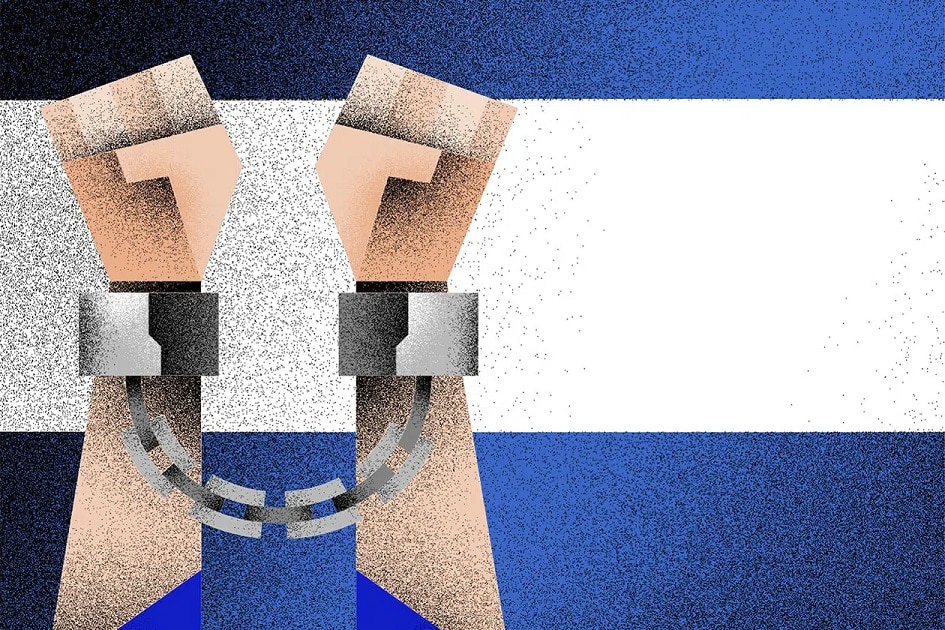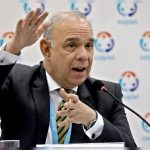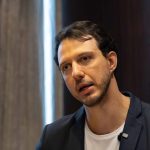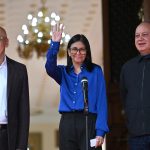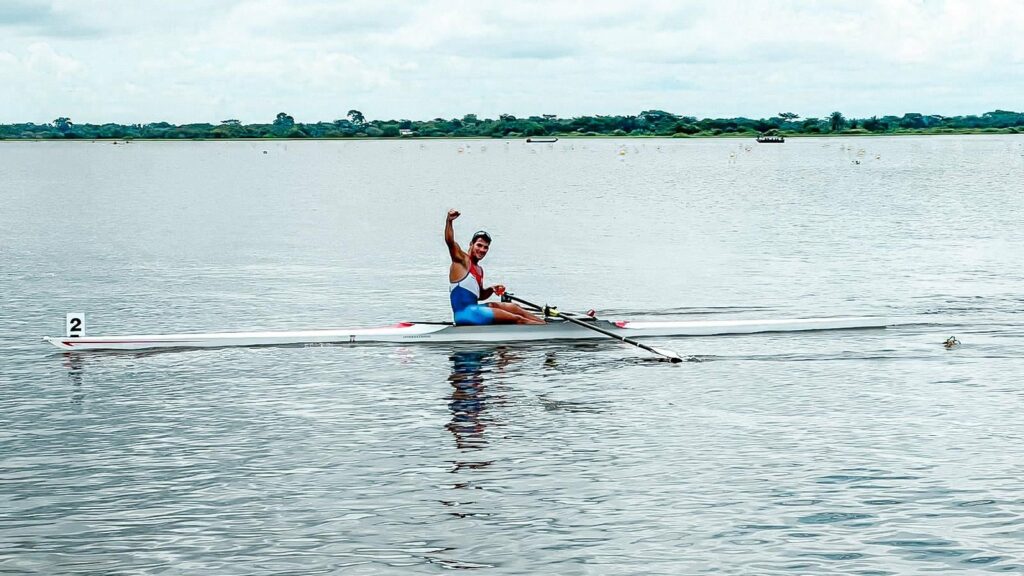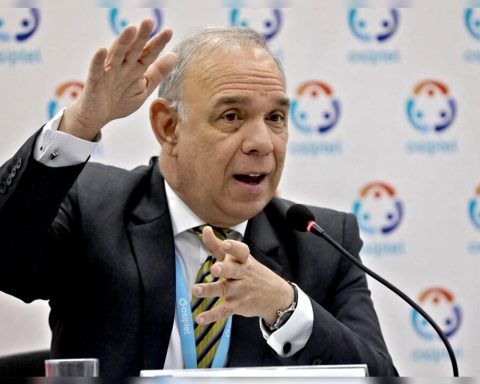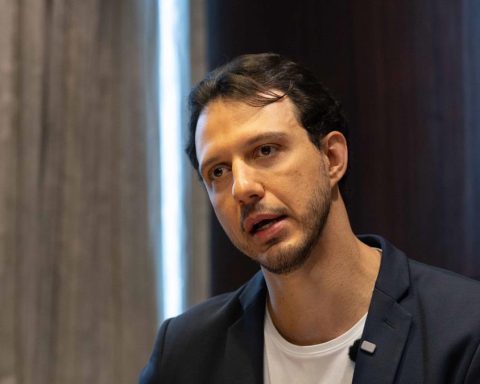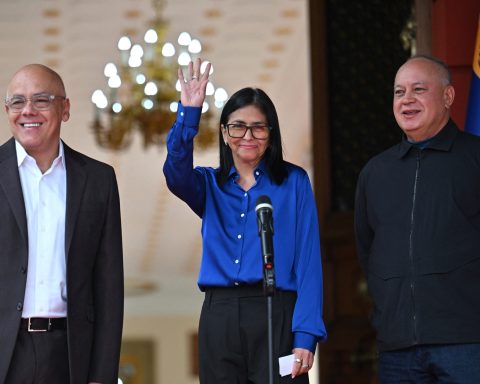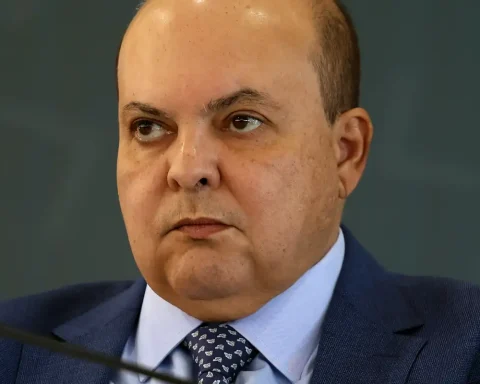Representatives of Nicaraguan civil society denounced that the State of Nicaragua “is in absolute noncompliance” with the ten precautionary measures granted by the Inter-American Commission on Human Rights (IACHR) in favor of 60 people, among them: 44 who remain deprived of released for political reasons, nine family members and seven released.
The complaint from civil society occurred during a public hearing on “supervision of ten precautionary measures for persons deprived of liberty in Nicaragua”, organized by the IACHR within the framework of the 184 period of sessions.
Carmen Herrera, from the Race and Equality Institute, pointed out, on behalf of 56 of the beneficiaries, that the State of Nicaragua “far from complying with what was requested by the Commission and the pronouncements of the international community, continues to carry out arbitrary arrests of people considered opponents to the Government” and keeps more than 180 people “detained for political reasons, in subhuman conditions that threaten their freedom, physical and mental health and their personal integrity and that constitute torture and cruel, inhuman and degrading treatment.”
“To date, the State of Nicaragua is in absolute non-compliance with what is required by the Commission (…). It has not enacted any measure to guarantee the life, health or personal integrity of the beneficiaries. It has not ensured access to specialized, adequate and quality medical care, according to their needs; Nor have they assessed the adoption of alternative measures to prison despite the context of the covid-19 pandemic, nor are we aware of the investigations carried out into the events that gave rise to the measures granted, ”he denounced.
Beneficiaries are at “risk”
Georgina Ruíz, from the Nicaraguan Center for Human Rights (Cenidh), pointed out that the beneficiaries “continue in unsanitary and inhumane conditions, which in themselves constitute cruel, inhuman and degrading treatment.”
He stressed that 42 of the beneficiaries remain in the Jorge Navarro Penitentiary System, known as La Modelo, ten of these in gallery 300 of maximum security cells of that prison, among them: Jaime Navarrete, Eduard Lacayo, Víctor Soza, John Cerna , Víctor Díaz, Kevin Solís, Gustavo Mendoza, Ernesto Ramírez, Uriel Pérez and Néstor Montealto.
“The maximum security and punishment cells, to which the prisoners were transferred arbitrarily and in many cases sanctioned, are cells that measure two by two square meters, their doors are metal and closed,” he described.
He added that as defenders they have received “numerous complaints about the inhumane conditions of imprisonment suffered by the beneficiaries”, among them: unsanitary and overcrowded conditions, and little access to drinking water.
Alexandra Salazar, from the Legal Defense Unit, explained that the beneficiaries also continue “without access to basic and specialized medicines for the treatment of their ailments and chronic diseases, they do not have specialized and timely medical attention, which increases the risks for their lives.”
He mentioned that the health of political prisoner Maycol Antonio Arce, who has suffered from chronic gastritis since before his capture, has worsened due to the “lack of adequate food, timely and specialized medical care.”
Also, he denounced that at least nine people deprived of liberty have metabolic health problems that require medical attention, among them the political prisoner Carlos López Cano, who is hypertensive and has kidney problems and anemia; Fanor Ramos, who has diabetes and hypertension; and Benjamín Collado, who has a fatty liver, fractures resulting from beatings, and psychological problems.
Karina Sánchez, from the Mesoamerican Initiative of Women Human Rights Defenders (IM-Defensoras), pointed out that there are 18 women political prisoners in the country who have been the object of multiple attacks, including the two beneficiaries of precautionary measures, Karla Escobar and María Esperanza Sánchez, who are also in conditions of deprivation of liberty incompatible with human dignity.
She denounced that political prisoners “do not have access to specific health services that meet their differentiated needs based on their sex, gender identity, sexual orientation, for example, specialized medical care such as gynecology, access to personal hygiene items and intimate, or attention to chronic diseases”.
He explained that Escobar “is facing hair loss, hypertension, gynecological problems associated with cysts in the ovaries and depressive states without any type of health monitoring,” while Sánchez “has recently had to receive emergency care due to severe asthma, pressure high blood pressure, and difficulty walking.
“The prison conditions in which the prisoners are found (…) evidences the regime’s intention to punish them for their opposition position, disqualifying them from continuing to carry out their activities, even putting them at imminent risk of death,” he said.
In a few minutes it will start #Public audience in the framework of #184IACHR Period
? Follow the live broadcast on social networks of the #IACHR https://t.co/VGFhoocuPL
— IACHR – IACHR (@IACHR) June 24, 2022
Carlos Guadamuz, from the Nicaragua Never Again Collective, stressed that “torture in Nicaragua continues to be a systematic and generalized practice, which exacerbates the vulnerability of political prisoners.”
He explained that in the last six months some of the beneficiaries have been victims of beatings, death threats, indefinite imprisonment and threats.
He mentioned that some cases of systematic torture, such as: the political prisoner Gustavo Mendoza Beteta has been in maximum security cells for six months, totally isolated; that of Steven Mendoza, who was beaten last March by multiple custodians of La Modelo; and that of Lázaro Rivas Pérez who, after learning of the precautionary measures he received last March, was taken out of his cell and savagely beaten, while being warned that “the commander is the boss.”
Guadamuz stressed that the situation of the released beneficiaries of the precautionary measures has not improved either, since they continue to be “victims of political persecution, stigmatization, surveillance and siege of their homes by police, paramilitaries or groups related to the Government.”
After exposing this series of violations of the rights of the beneficiaries of the precautionary measures, civil society asked the IACHR to “require Nicaragua to immediately release the beneficiaries” and “order” that, while the administrative procedures are carried out, “proceed to guarantee the life and integrity of the beneficiaries, in particular in immediate access to health services and medicines, contact with relatives and lawyers at least once a week, and minimum conditions of detention.”
They also requested that the Inter-American Court request the adoption of provisional measures for the beneficiaries; Nicaragua is required to “give its consent for a Commission delegation to enter the territory to verify the implementation and effectiveness of the measures”; and to issue a “public statement on the specific situation of the beneficiaries.”
State of Nicaragua absent again
the commissioner Esmeralda Arosemena, country rapporteur for Nicaragua, he expressed his shock at the conditions described by civil society and regretted the non-compliance of the Nicaraguan State.
“There are no responses from the system in matters as essential as the issue of people’s lives, and when I say life I mean physical and psychological integrity, their dignity in the face of so much humiliation, threat, torture, I think there is no single word of adjectives that we can exclude from the reality that the Nicaraguan people are experiencing,” he lamented.
the commissioner Joel Hernández, rapporteur for Human Mobility and Human Rights Defenders of the IACHR, also lamented that for the fifth consecutive year, since he has served as commissioner, “andThe State of Nicaragua is absent” and that there continue to be “unfortunate setbacks in the cooperation of the State with the Organization of American States and with the IACHR in particular.”
In addition, he considered that in order to reverse the human rights situation in Nicaragua, the situation that political prisoners go through must continue to be made visible, for which, he stressed, “this hearing is then added to other ways of expressing the serious human rights situation that It happens in Nicaragua.”
